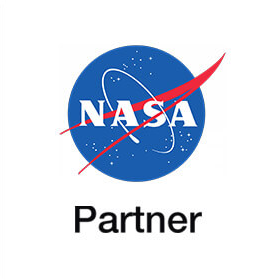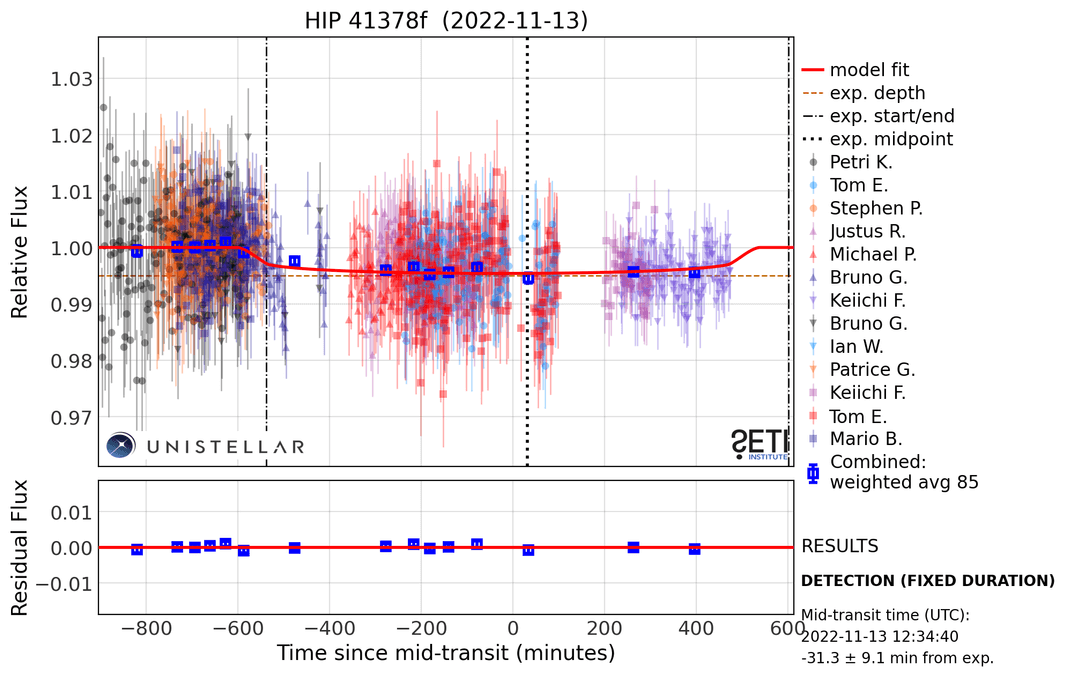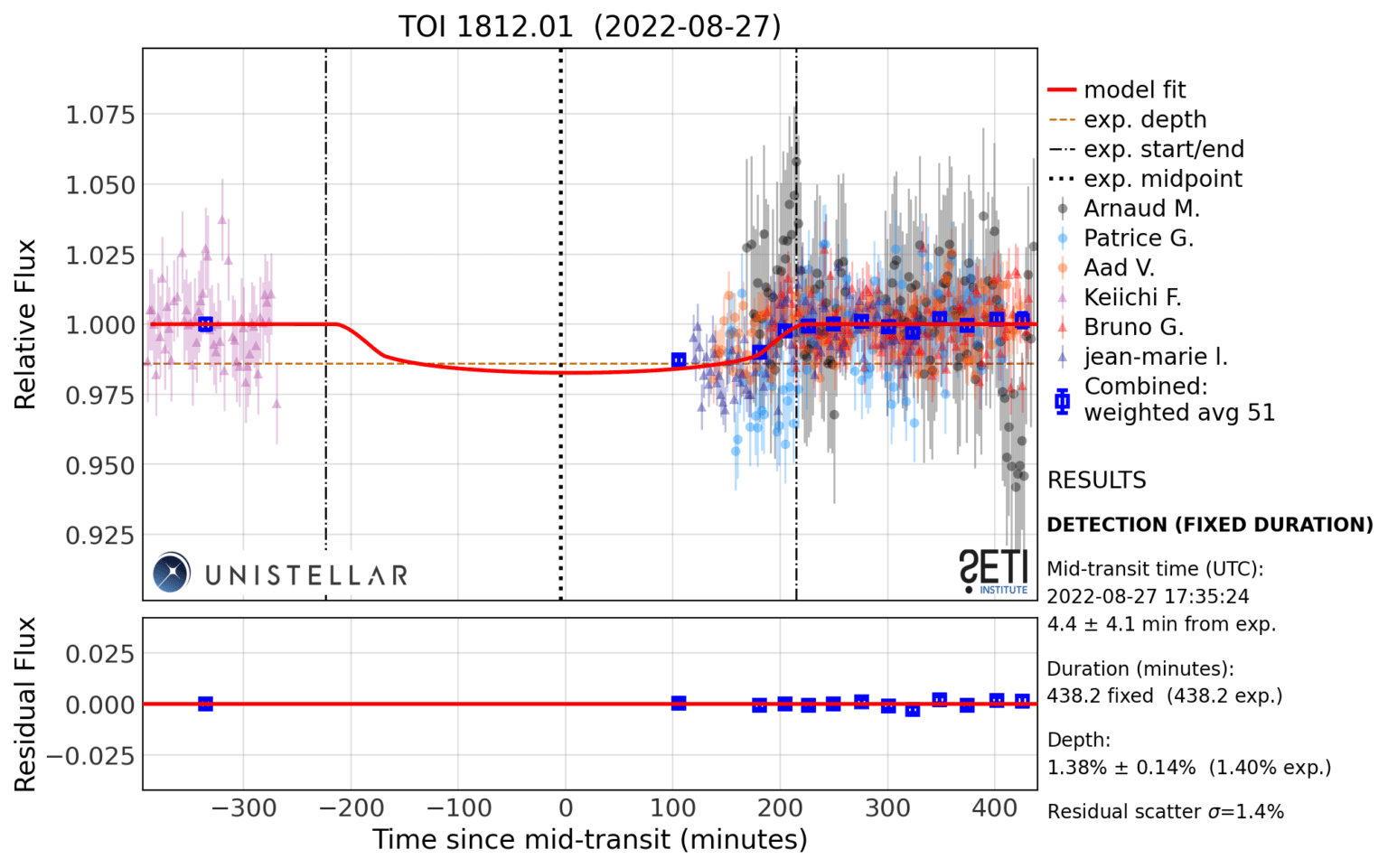SETI Institute + Unistellar Citizen Science
UNITE
Unistellar Network Investigating TESS Exoplanets
A NASA Citizen Science project

Use Your Telescope To Confirm The Existence Of Newly Discovered Worlds
Join the worldwide Unistellar Network of citizen scientists and professional astronomers to discover and characterize some of the most interesting exoplanets in our galaxy!
Giant exoplanets resembling Jupiter that have been recently discovered by TESS, NASA’s current exoplanet hunting mission, need your help. Astronomers don’t have enough information to fully understand the orbits of these planets, which take months or years to circle their star once. This is usually because TESS and other telescopes haven’t had many chances to catch the temporary dimming of the exoplanet’s star as the planet passes, or transits, in front it.
This is where you and UNITE come in! Only a network of people around the world, cooperating to observe the same target, will be able to catch more transits by these exoplanets.
This can be because these planets take many hours to transit their star (much longer than a single night on Earth) or because the dates of future transits cannot yet be accurately predicted. With your observations, scientists can understand the orbits and conditions of these foreign worlds like never before.
Explore below to learn about exoplanets or get started tonight!
Don’t have a Unistellar telescope? Here’s how you can still be part of the UNITE mission.
Featured Exoplanet Transit for May 2024:
HIP 41378f

Above: The attempt by the UNITE network to catch the HIP 41378f transit in November 2022! Unfortunately due to poor weather for observers during ingress and egress, the joint observation was not robust enough to be considered a true detection.
Observation dates: May 7 – 9
We need your help studying the orbit of this super-puff planet!
HIP 41378f is a Saturn-like planet in a multi planet system and is referred to as a “super-puff” due to large size but suspiciously low density. This planet is already a confirmed world that holds the record for longest observed transit, but there are are still some lingering questions about it! This exoplanet exhibits Transit Timing Variations (TTVs), or changes in the timing of this planet’s transits, which make it hard for space telescope’s to focus on. Scientists think it may have rings, and perhaps even moons (much like Saturn in our own Solar System) that cause this TTVs. The Hubble Space Telescope made observations of HIP 41378 f in 2021 to determine its atmosphere’s makeup, but didn’t gather any useful information – strange for a planet that is so “puffy.” This high strangeness led astronomers to think that this exoplanet may have rings that make it appear “puffier” than it really is.
We need observations of this 19-hour transit to help astronomers learn more about this planet’s transit timing and size. Because this planet has a 542-day period, the chance to study a transit only comes around so often – in fact, UNITE observed this planet in 2022 but did not detect the transit signature and we still need observations! So now is your chance to catch this transit.
Join this mission and learn more with the Pick Your Target link above!
Featured Result: TOI 1812.01

Despite having two transits observed by TESS, its period (the length of its year) was poorly known: previous estimates ranged from 71 – 157 days.
To nail down the orbit, 20 Citizen Astronomers tracked TOI 1812.01 for three nights over the course of two months. Only on the third night, August 27, did they spot the exoplanet and confirm that it takes 112 days to orbit its star.
Meet the Team
Meet the SETI Institute scientists behind the Unistellar Network’s NASA-Sponsored Exoplanet Programs:
Tom Esposito, PhD – UNITE Principal Investigator, Pipeline Development
Lauren Sgro, PhD – Exoplanets Lead, Observation Planning, Data Analysis, Communications
Franck Marchis, PhD – Outreach, Communications
Previous contributors – Dr. Paul Dalba, Dr. Daniel Peluso
